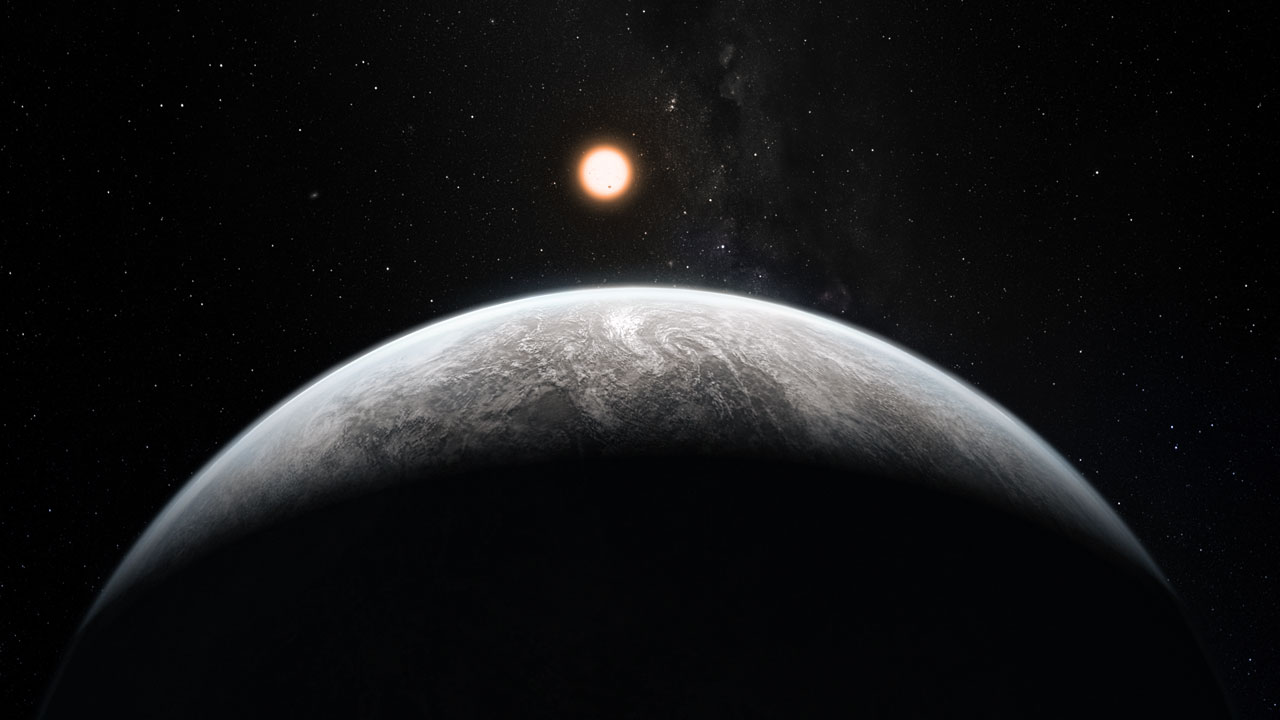India Follows Anti-Satellite Missile Test with 29-Satellite Launch
It's been a busy week in space for India.
It's been a busy week in space for India. Just days after the country's Defence Research and Development Organisation (DRDO) performed an anti-missile test, India's space agency launched a military satellite as part of a hefty 29-satellite launch.
The Indian Space Research Organization (ISRO) launched the Electro-Magnetic Intelligence Satellite (EMISAT) at 9:27 a.m. local time in India (12:27 a.m. EDT or 0427 GMT) on Monday. EMISAT was the primary payload on the Polar Satellite Launch Vehicle (PSLV), which also launched 28 international customer satellites from Satish Dhawan Space Centre in Sriharikota.
EMISAT is optimized to look for signals from "enemy radar," sources from DRDO told The Times of India, and it has been under development for about five years. "What this allows us to do now is essentially know what kind of radar is at work on the other side, based on the spectrum, and we will be able to read the distance between the radar and our asset, too," a scientist involved in the project told the Indian newspaper.
Related: India's Anti-Satellite Missile Test Is a Big Deal. Here's Why.
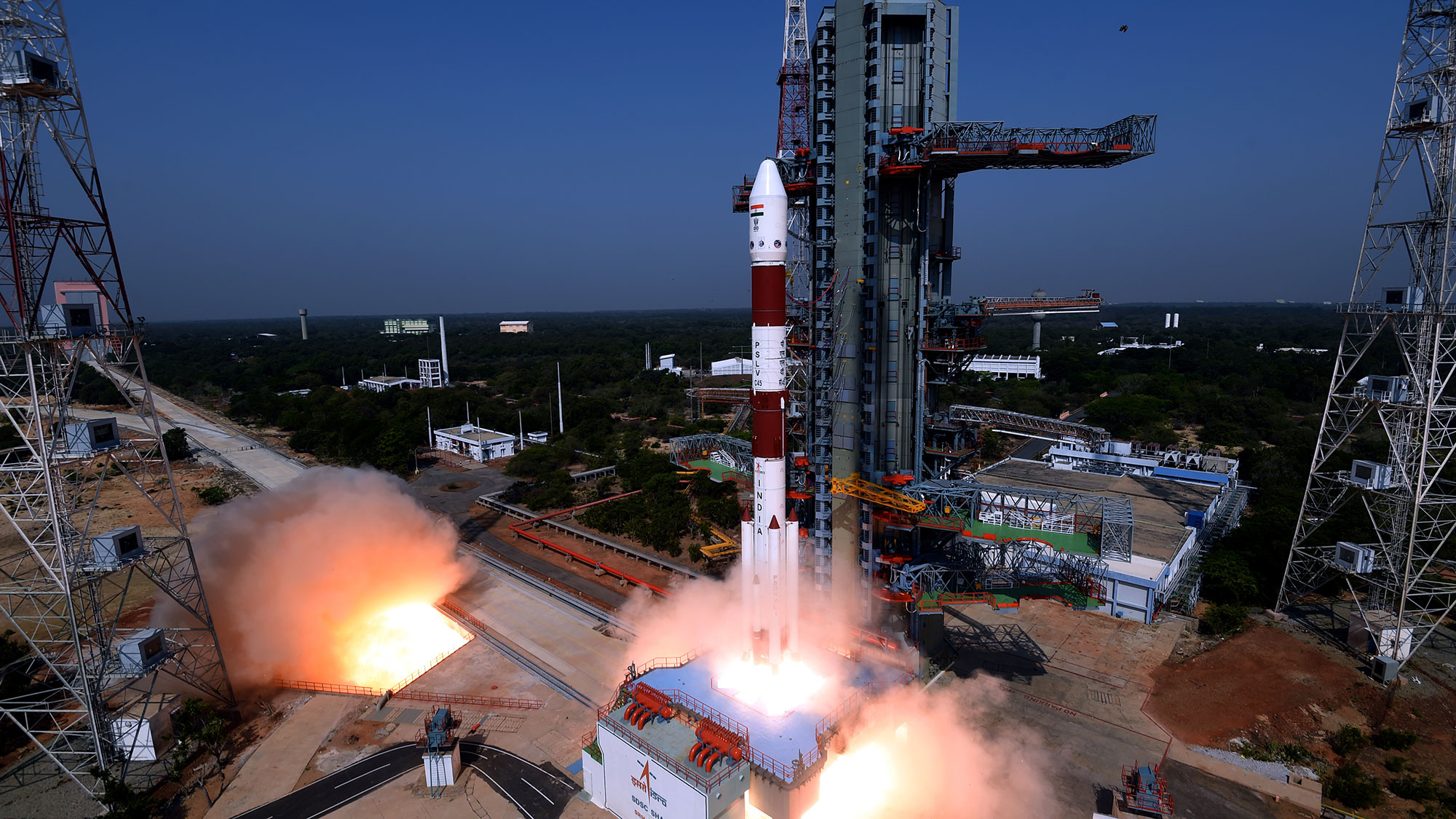
India Launches 29 Satellites!
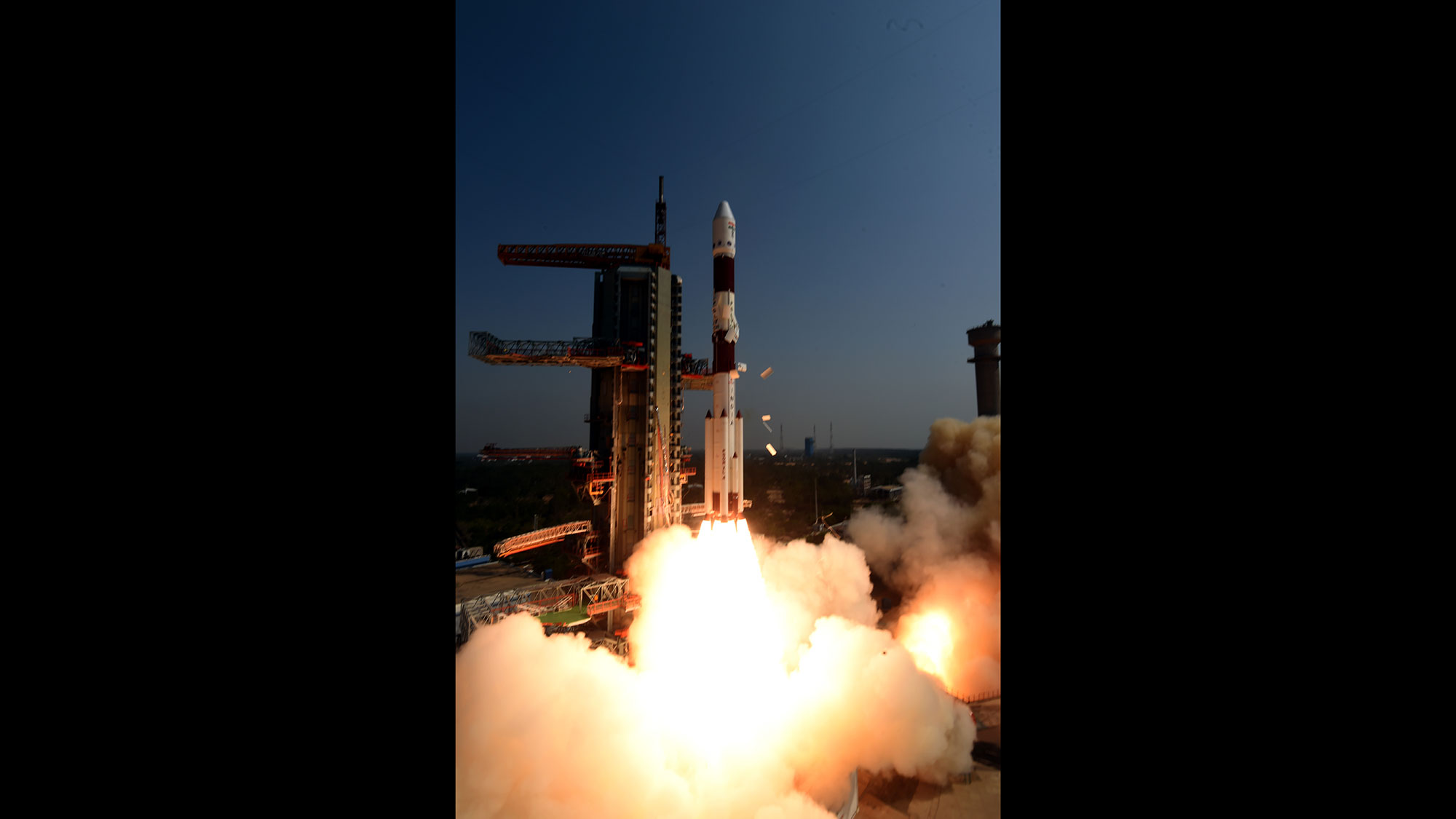
India Launches 29 Satellites!
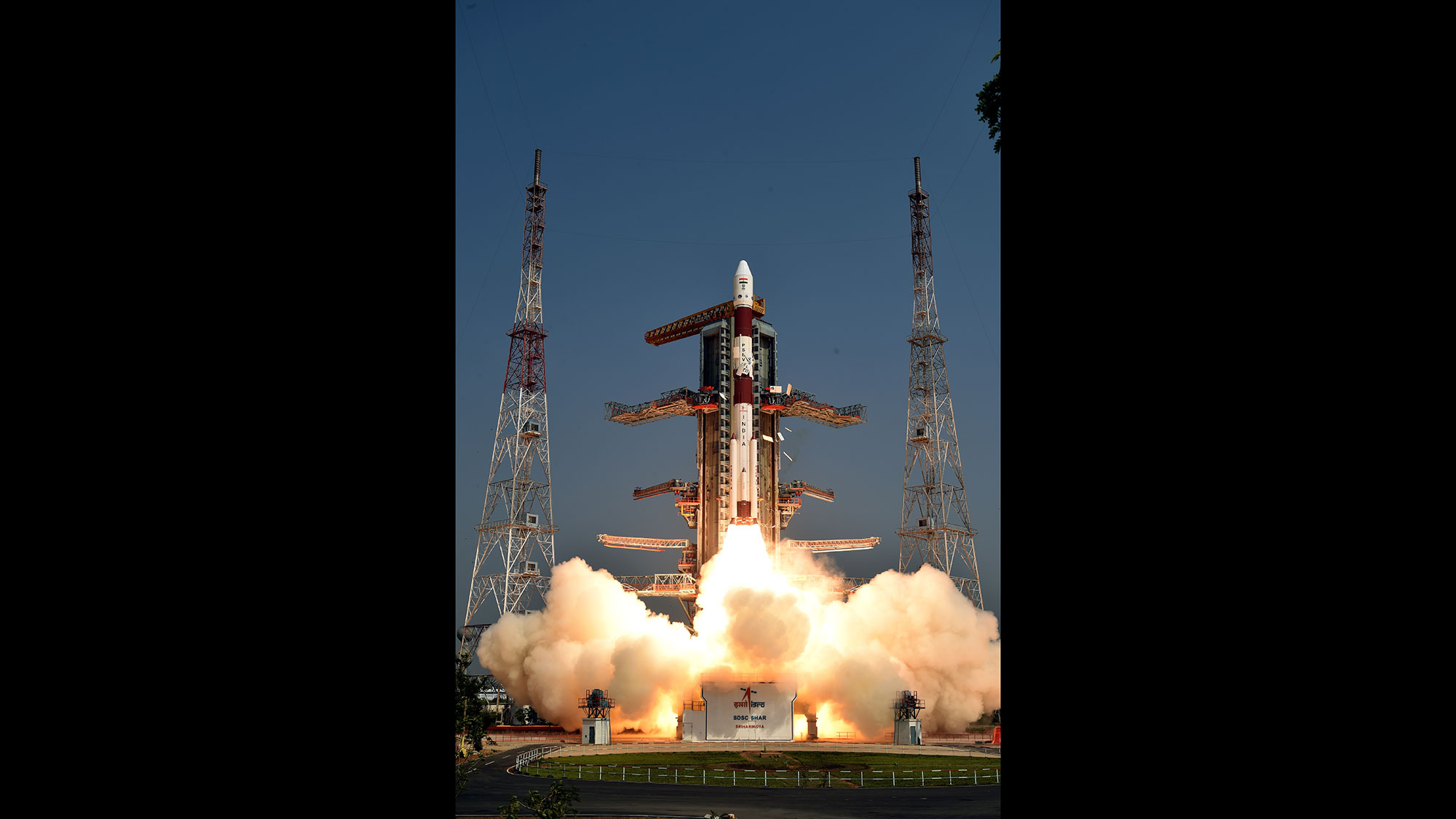
India Launches 29 Satellites!
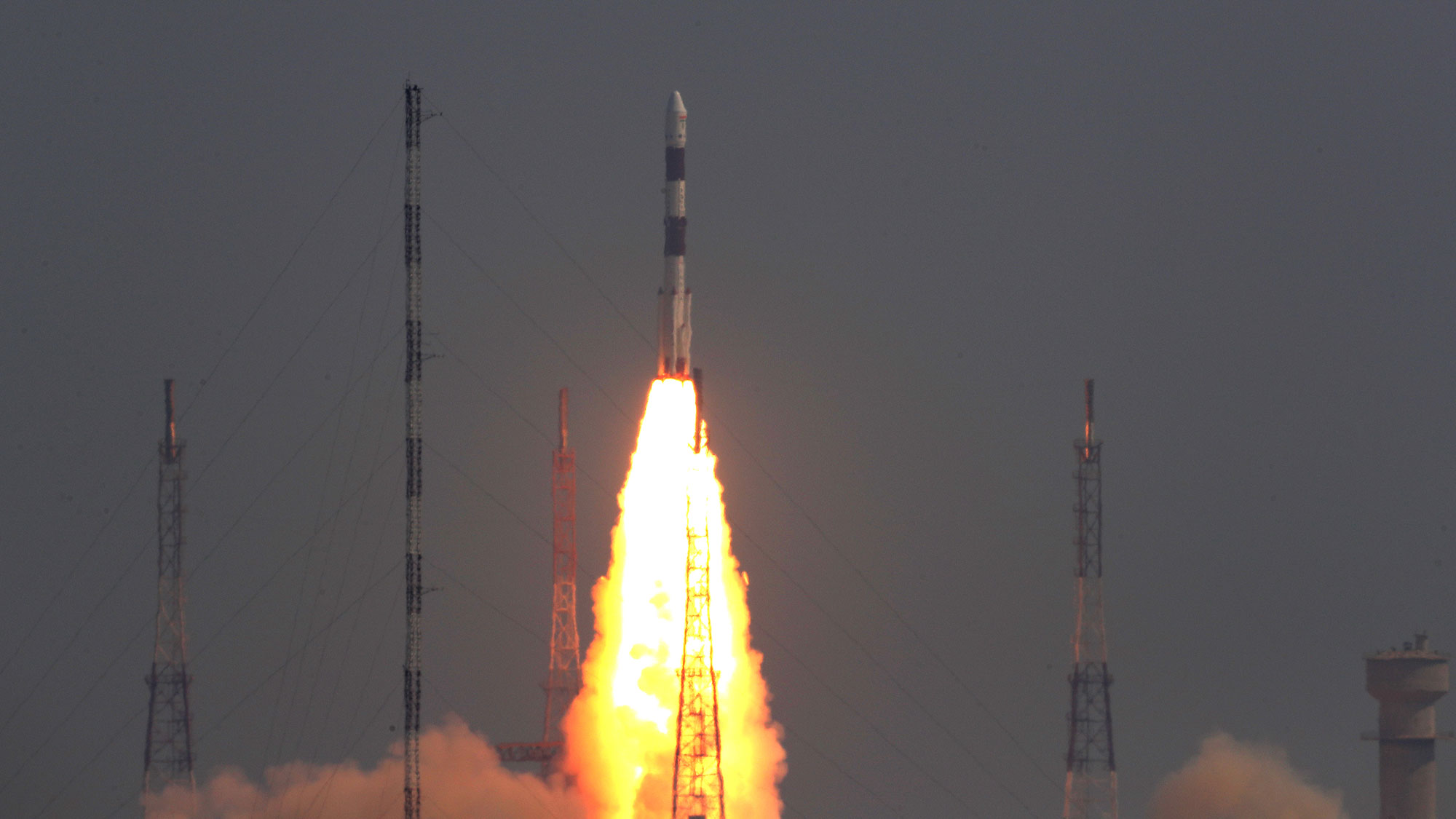
India Launches 29 Satellites!
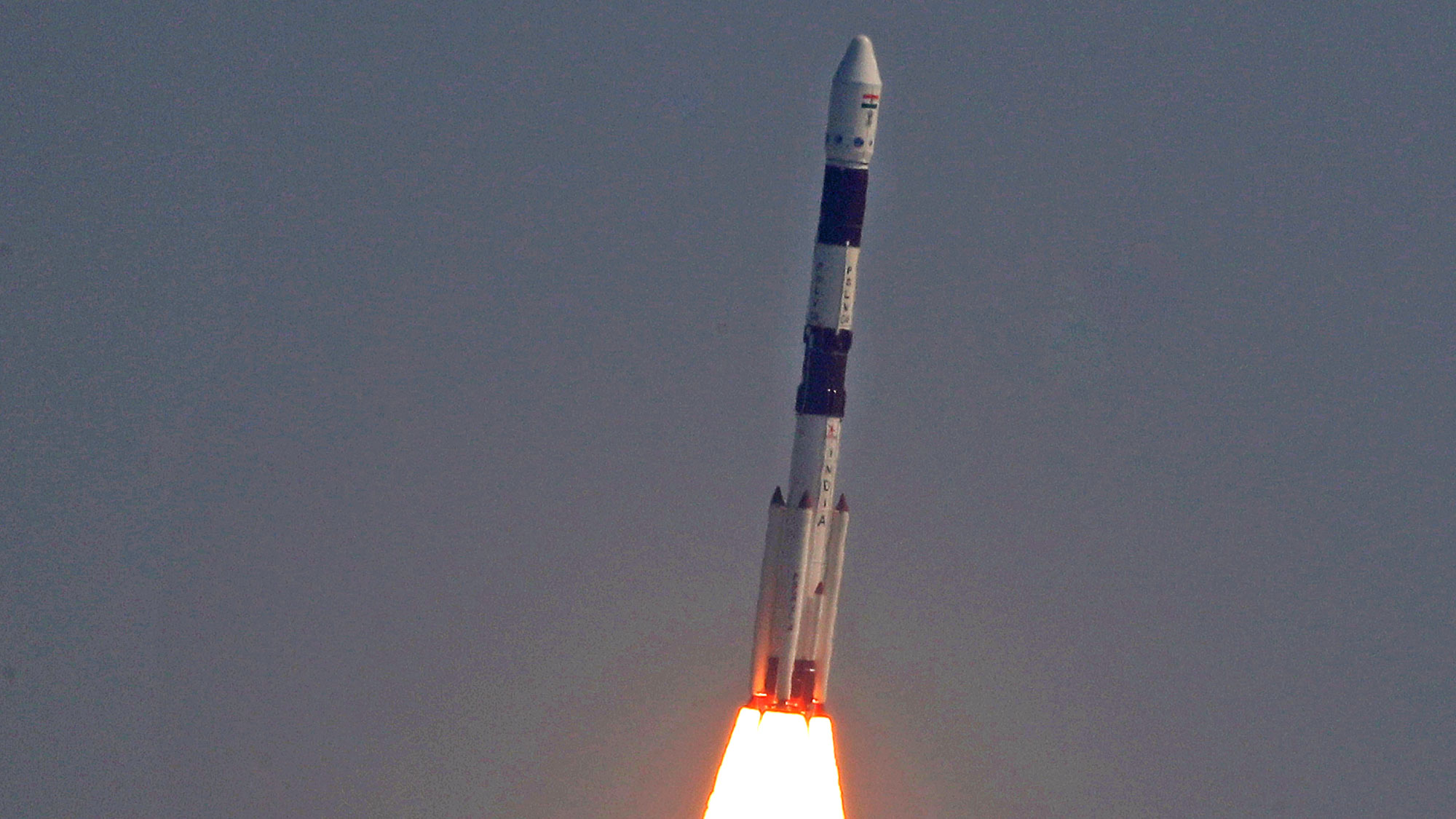
India Launches 29 Satellites!
India deliberately destroyed one of its own satellites on March 27 in a low-Earth-orbit test. While international observers worried about possible satellite debris, in news reports, India has said that the test concluded with minimal shards, which will fall back to Earth quickly. (Coincidentally, the U.S. military did a missile defense test of its own last week, with two interceptors successfully blasting an intercontinental ballistic missile out of the sky, but this was done within Earth's atmosphere.)
As for the other satellites on the PSLV launch, 24 of them were from the United States, while the others came from Lithuania (two), Spain (one) and Switzerland (one). ISRO said the satellites were "launched as part of commercial arrangements." This is the first launch of the PSLV-QL variant, which includes four strap-on motors. Across all variants, PSLV has successfully launched more than 350 national, international and student satellites, including the 29 that launched Monday.
- India's Anti-Satellite Test Created Dangerous Debris, NASA Chief Says
- India Says Its ASAT Test Created Minimal Space Debris. Is That True?
- Rocket Launches of 2019!
Follow Elizabeth Howell on Twitter @howellspace. Follow us on Twitter @Spacedotcom and on Facebook.
Breaking space news, the latest updates on rocket launches, skywatching events and more!

Elizabeth Howell (she/her), Ph.D., was a staff writer in the spaceflight channel between 2022 and 2024 specializing in Canadian space news. She was contributing writer for Space.com for 10 years from 2012 to 2024. Elizabeth's reporting includes multiple exclusives with the White House, leading world coverage about a lost-and-found space tomato on the International Space Station, witnessing five human spaceflight launches on two continents, flying parabolic, working inside a spacesuit, and participating in a simulated Mars mission. Her latest book, "Why Am I Taller?" (ECW Press, 2022) is co-written with astronaut Dave Williams.
